




When it comes to keeping our dishes clean and sanitary, handwashing has been the traditional method for centuries. However, with the advent of dishwashers in modern homes, many people are now turning to these appliances as a time-saving and greener option. But are dishwashers as hygienic as handwashing? Let’s delve into the topic to find out!
One of the benefits of using a dishwasher is the hot water and high temperatures it uses for cleaning. Unlike hand-washing, which often involves using lukewarm water, dishwashers can reach temperatures as high as 140°F (60°C). This helps to kill germs and bacteria that may be lurking on your dishes, ensuring a more thorough clean.
Another point to consider is that dishwashers often have a spray arm that ensures all surfaces of your dishes are thoroughly washed. This means that even hard-to-reach areas can be cleaned effectively, reducing the chances of any nasty surprises when you go to use your dish. Hand-washing can sometimes leave residue or missed spots, which is less likely to happen with a dishwasher.
Some may argue that drying your dishes by hand after a dishwasher cycle is an error. However, it is actually a crucial step in maintaining hygiene. Damp dishes can be a breeding ground for bacteria, so taking the time to dry them thoroughly can help prevent any potential contamination. Additionally, most dishwashers have an option for heated drying, which further ensures that your dishes are free from excess moisture.
Although dishwashers have their benefits when it comes to cleanliness and hygiene, it is important to note that not all dishwashers are created equal. According to a manager at a top dishwasher manufacturer, dishwashers with a filter are more effective in removing food particles and maintaining cleaner water. If your dishwasher doesn’t have a filter, it is vital to scrape off any leftover food before loading it into the appliance.
In conclusion, while hand-washing dishes can be an effective method of maintaining hygiene, dishwashers offer a more sanitary and efficient option. By using high temperatures, thorough spray cleaning, and proper drying techniques, dishwashers can ensure that your dishes are clean and free from harmful bacteria. So, if you’re looking to invest in a new dishwasher or wondering whether to trust your current appliance, the evidence points towards dishwashers being a top choice for keeping your dishes hygienic!
The Hygiene Myth: Unveiling the Truth Behind Dishwasher Cleanliness
When it comes to washing dishes, many people believe that handwashing is the most hygienic option. However, recent studies have shown that dishwashers are not only cleaner but also greener, debunking the common myth of their inferior cleanliness. Let’s delve into the truth behind dishwasher hygiene and how it measures up against handwashing.
The Benefits of Dishwasher Cleaning Cycles

Contrary to popular belief, dishwashers do not leave your dishes dirty and unsanitary. In fact, modern dishwashers go through multiple cycles that include pre-washing, washing, rinsing, and drying. These cycles are designed to remove tough stains and bacteria effectively, providing a level of clean that handwashing often struggles to achieve.
One of the key advantages of using a dishwasher is the use of high-temperature water. The hot water not only kills germs but also eliminates any nasty odors that may be lingering on your dishes. Additionally, many dishwashers have special programs, such as intensive or sanitize cycles, that further enhance the cleanliness and safety of your dishes.
The Effectiveness of Dishwasher Cleaning
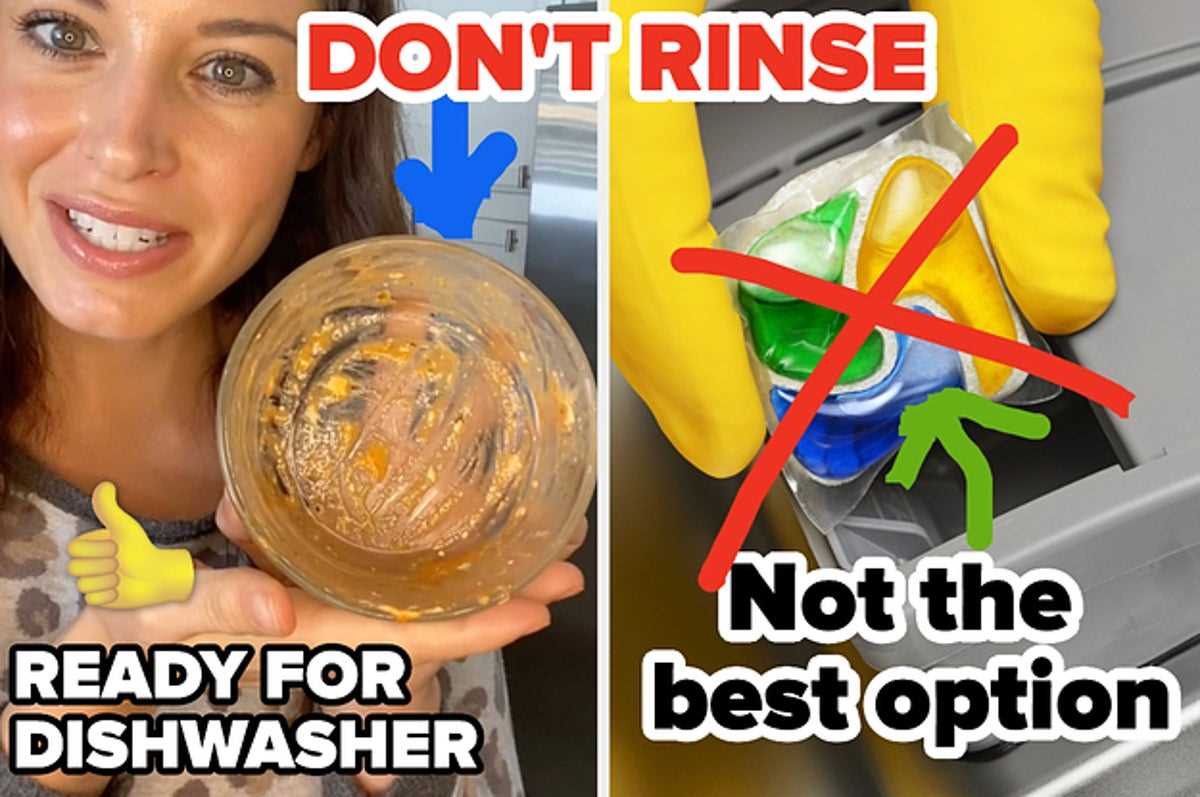
Some individuals argue that handwashing is superior because they can scrub the dishes thoroughly. However, research has shown that dishwashers are actually more effective at removing stubborn food particles and grime. The powerful water jets and spinning arms in the dishwasher work to dislodge and wash away dirt, leaving your dishes squeaky clean.
Furthermore, dishwashers use a combination of water and detergent, which ensures a consistent and proper cleaning process for your dishes. Handwashing, on the other hand, often relies on variations in water temperature and pressure, leading to inconsistent results.
The Environmental Impact
In addition to being highly effective, dishwashers also help save water and energy. Contrary to popular belief, handwashing dishes can waste more water than a dishwasher, especially if you tend to leave the water running while scrubbing. Dishwashers have become more energy-efficient over the years, and using one can significantly reduce your overall carbon footprint.
The Verdict
When it comes to dishwashing hygiene, dishwashers are the clear winner. They provide a more consistent and thorough cleaning compared to handwashing, thanks to their specialized cleaning cycles and powerful water jets. Not only do dishwashers save time and effort, but they also promote environmental sustainability by efficiently using water and energy.
Whether you have a slimline dishwasher for a small kitchen or a large dishwasher for a big family, investing in a dishwasher is a smart choice for maintaining proper hygiene and cleanliness in your kitchen. So, let go of the hygiene myth and embrace the convenience and effectiveness of a dishwasher for your daily dishwashing needs.
Is Your Dishwasher Really Clean?
When it comes to cleaning your dishes, many people rely on dishwashers to do the job. These handy appliances can save you time and effort, but are they really as hygienic as they claim to be? Let’s take a closer look at what makes a dishwasher clean and whether or not it lives up to its promises.
1. Detergent and Water Temperature
The detergent used in dishwashers is specifically designed to remove food particles and grease from your dishes. Combined with hot water, which is usually at higher temperatures than what most hand-washing can achieve, it creates an effective cleaning solution. The high temperatures and powerful spray arms in the dishwasher ensure that your dishes are thoroughly cleaned and disinfected.
2. Proper Loading and Cycles
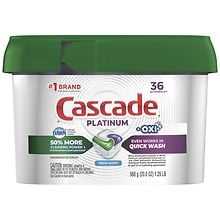
To get the most out of your dishwasher, it’s important to load it properly. Make sure that the spray arms can rotate freely and that the dishes are not blocking them. Use the appropriate cycle for your dishes, as different cycles have different cleaning intensities and durations. Using the eco-setting can save energy and be more environmentally friendly, but keep in mind that it may not be as hygienic as the higher temperature options.
3. Maintenance and Filters
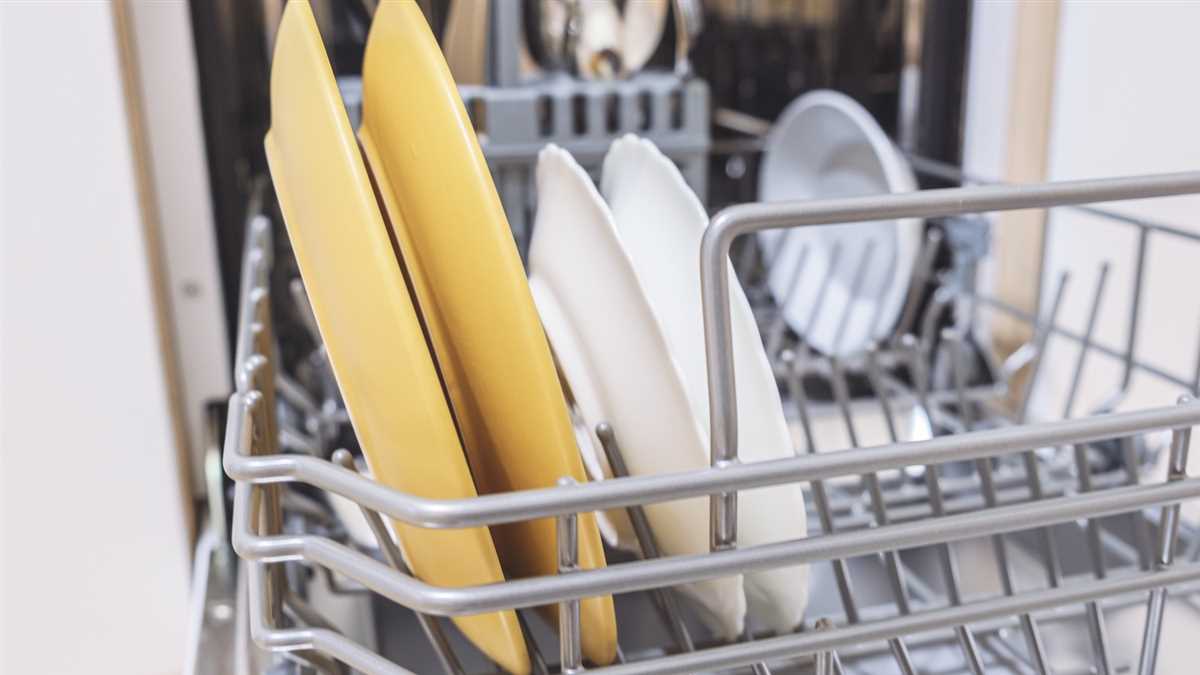
To ensure that your dishwasher remains clean and functional, regular maintenance is necessary. Clean the filter regularly to prevent food particles from clogging it and affecting the cleaning process. Also, check for any build-up or residue in the dishwasher and clean it if necessary.
Hand-Washing vs Dishwashing
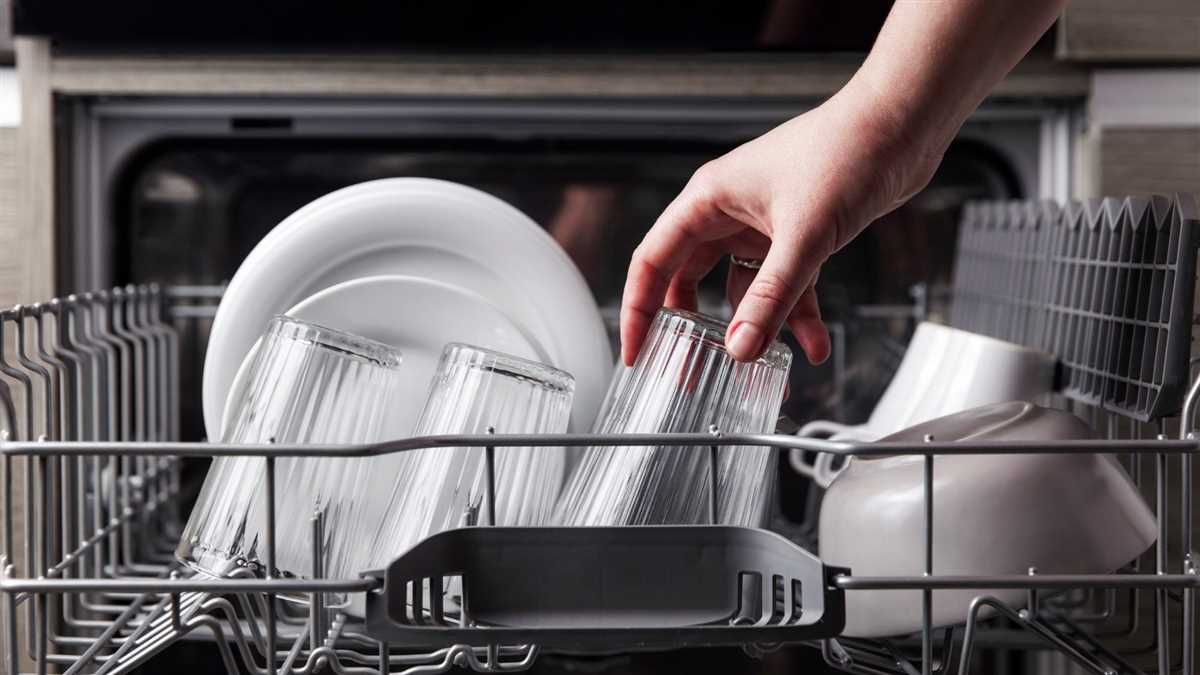
So, is hand-washing or dishwashing the better option? In terms of cleanliness and hygiene, using a dishwasher is generally more effective. It uses hotter water temperatures and powerful spray arms to remove dirt and bacteria from dishes. Hand-washing, on the other hand, may not reach high enough temperatures to kill all bacteria. However, improper loading, a dirty dishwasher, or using the wrong cycle can affect the cleanliness of your dishes in the dishwasher.
In terms of water usage, dishwashers usually use less water than hand-washing. By efficiently spraying water onto the dishes, dishwashers can use water more economically. Additionally, using a dishwasher can also be a greener option in terms of energy usage, especially if you use the eco-setting.
Tips for a Clean Dishwasher
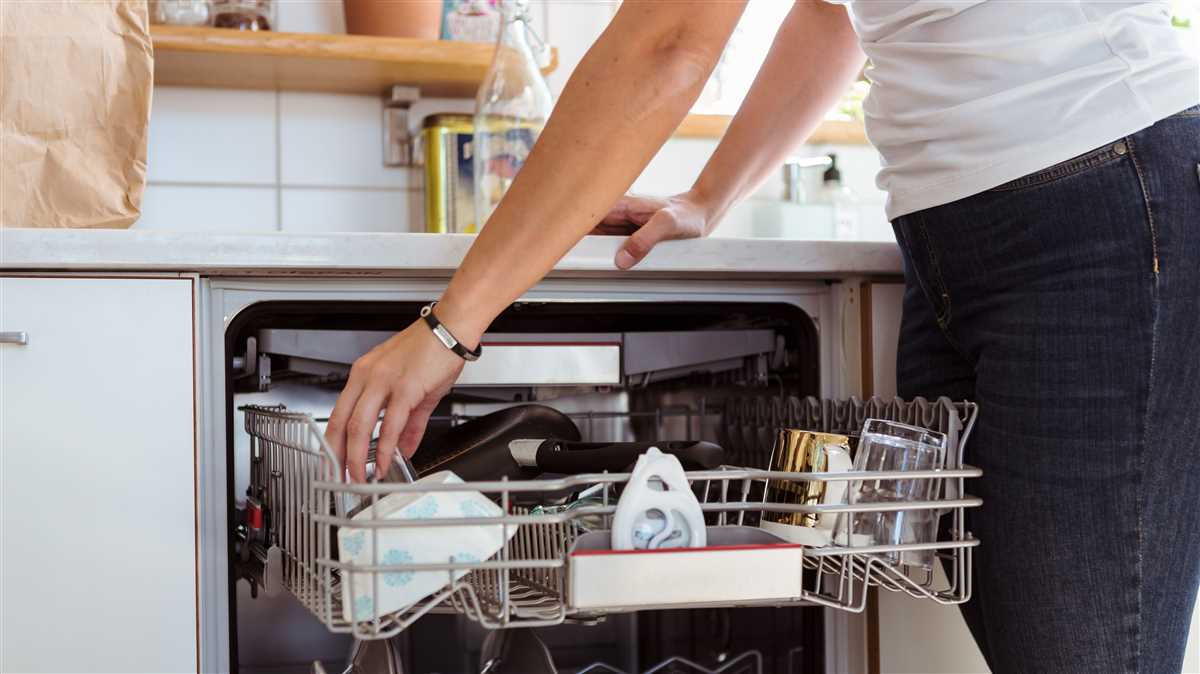
- Regularly clean the filter to ensure proper water flow.
- Inspect the spray arms and make sure they can rotate freely.
- Check for any residue or build-up inside the dishwasher and clean it if necessary.
- Use the appropriate cycle for your dishes’ cleaning needs.
- Consider using the eco-setting to save energy, but be aware of potential hygiene trade-offs.
In conclusion, dishwashers are generally hygienic and efficient when used correctly. By following these tips and properly maintaining your dishwasher, you can ensure that your dishes come out clean and germ-free. So, go ahead and enjoy the convenience of a dishwasher while also saving time and effort in your daily dishwashing routine.
Exploring the Importance of Hygiene in Dishwasher Usage
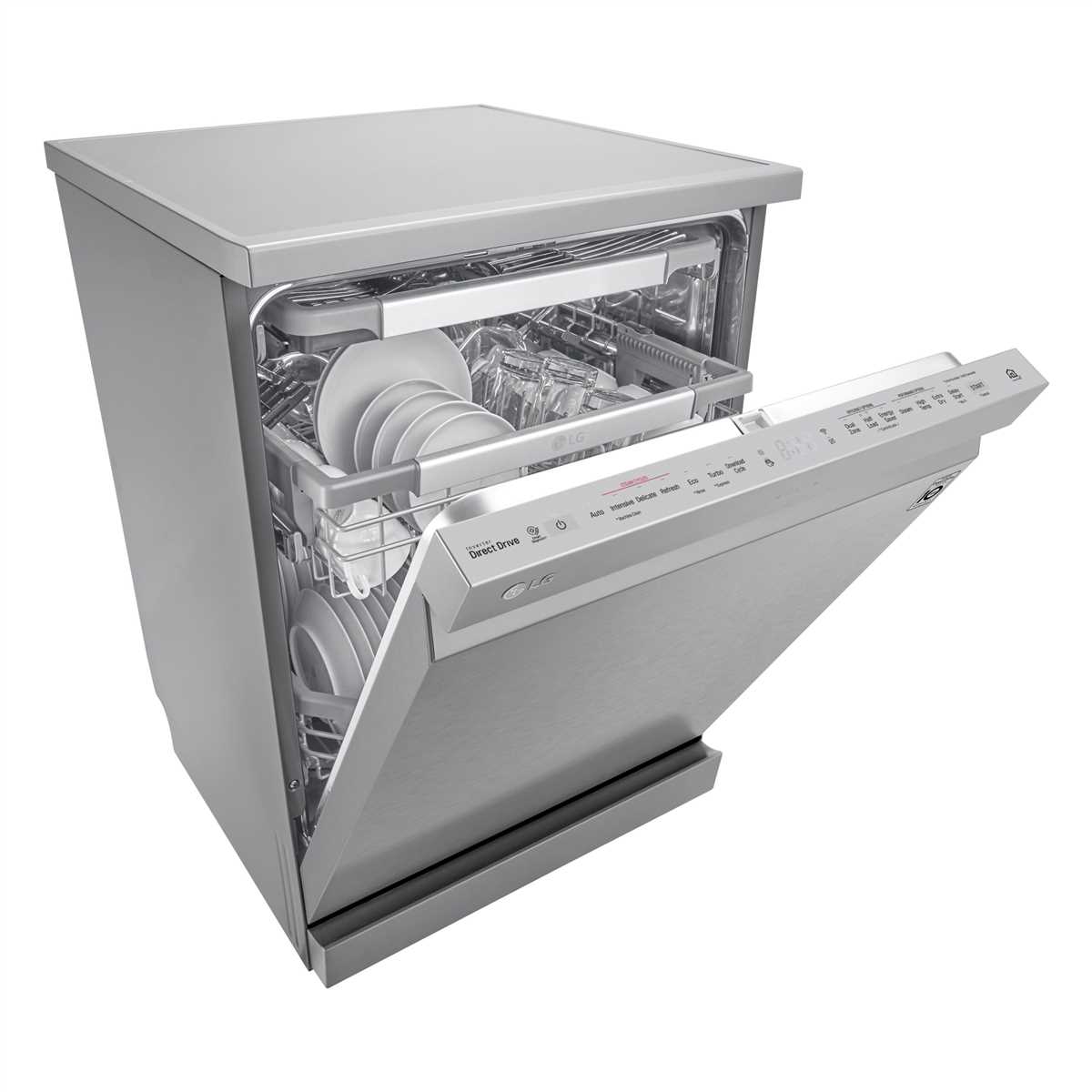
When it comes to maintaining a clean and sanitary kitchen, the temperature and wash cycles of a dishwasher play a crucial role. Although dishwashers are often seen as a more convenient alternative to handwashing, it is essential to understand the importance of proper hygiene when using these appliances.
One of the benefits of using a dishwasher is that it provides a better cleaning result compared to handwashing. Dishwashers are designed to reach high temperatures that kill bacteria and germs, ensuring that your dishes and utensils are thoroughly cleaned. Additionally, dishwashers have various wash cycles and options that can meet different cleaning needs, making them a versatile tool in the kitchen.
However, simply loading the dishwasher and running a cycle doesn’t guarantee optimal cleanliness. It is important to properly pre-rinse dishes and remove any food particles before placing them in the dishwasher. This ensures that the dishwasher’s filter and spray arms are not clogged, allowing for a more effective cleaning process.
Furthermore, proper drying of dishes after they are washed is essential for maintaining hygiene. Leaving dishes damp or wet can create a breeding ground for bacteria and mold. Using the dishwasher’s drying cycle or thoroughly drying dishes with a clean towel can help prevent the growth of harmful microorganisms.
For those who prefer handwashing, it is important to note that dishwashers are often more hygienic than handwashing, provided they are used correctly. Numerous studies have shown that dishwashers are more effective in removing bacteria compared to handwashing with dish soap and water alone. Additionally, dishwashers use hot water and detergent, which further contributes to their cleaning and sanitizing capabilities.
So, what’s the verdict on using dishwashers for hygiene purposes? The answer is clear: dishwashers, when used properly, are a sanitary and hygienic option for cleaning dishes and utensils. However, it is important to note that dishwashers require regular maintenance, such as cleaning the filter and ensuring that the unit is in good working condition, to ensure optimal cleanliness.
In conclusion, the proper usage of a dishwasher can contribute to a cleaner and more hygienic kitchen. By understanding the importance of temperature, wash cycles, and proper drying techniques, dishwashers can be a pocket-friendly and sanitary option for keeping your kitchen clean and germ-free.
- Dishwashers provide a better cleaning result compared to handwashing.
- Proper pre-rinsing and drying are essential for optimal cleanliness.
- Dishwashers are more hygienic than handwashing, but regular maintenance is required.
Dishwasher vs Hand-Washing: Which is More Hygienic for Drying?
When it comes to drying dishes, there is an ongoing debate between using a dishwasher and hand-washing. Some people think that hand-washing is the better option, while others believe that using a dishwasher is more likely to be hygienic. Let’s take a closer look at the pros and cons of each method to determine which one is more suitable for drying dishes.
Hand-Washing: Pros and Cons

- Hand-washing can be done with more precision, as you can visually inspect each dish to ensure it is clean.
- Using the eco-setting on your dishwasher can save water and energy.
- Hand-washing can be time-consuming and labor-intensive, especially if you have a large number of dishes to clean.
- If you’re not careful, hand-washing can lead to cross-contamination, as there is a higher chance of coming into contact with bacteria and germs.
Dishwasher: Pros and Cons
- Dishwashers are designed to reach high temperatures, which can kill bacteria and germs more effectively than hand-washing.
- Dishwashers often have a filter that helps to remove food particles and improve cleanliness.
- Using a dishwasher can be more water-efficient, as it typically uses less water than hand-washing.
- If not loaded properly, dishes may not be cleaned thoroughly, so it’s important to follow the manufacturer’s instructions.
- Dishwashers can be expensive to purchase and maintain, and not all homes have enough space to accommodate a dishwasher.
In conclusion, both hand-washing and using a dishwasher have their benefits and drawbacks when it comes to drying dishes. Hand-washing allows for greater precision and control over the cleanliness of each dish, but it can be time-consuming and less water-efficient. On the other hand, dishwashers are generally more effective in terms of hygiene and water-saving, but proper loading and maintenance are crucial for optimal performance.
Ultimately, the choice between hand-washing and using a dishwasher for drying dishes depends on personal preference, kitchen space, and the level of importance placed on hygiene. Regardless of which method you choose, it is essential to ensure that dishes are thoroughly cleaned and dried before use to maintain a sanitary kitchen environment.
Debunking Common Myths about Dishwasher Cleaning
When it comes to the cleanliness of our kitchens, there is always a misconception about dishwashers. Some people might think that washing dishes by hand is more hygienic than using a dishwasher, but is that really the case?
- Myth 1: Dishwashers are less hygienic than handwashing
This is a common belief, but it’s actually not true. Dishwashers are designed to clean dishes, glasses, and silverware at high temperatures, which help in killing germs and bacteria that may be present on the surfaces. Additionally, most dishwashers now come with effective water filtration systems that remove food particles and debris, ensuring that your dishes are thoroughly cleaned.
- Myth 2: Handwashing is more effective
While some people may prefer handwashing because they feel it gives them more control over cleaning, studies have shown that dishwashers are actually more effective in removing bacteria. The hot water and detergent combination used in dishwashers can better sanitize dishes compared to washing with hand and dish soap.
- Myth 3: Dishwashers waste a lot of water
It is a common misconception that dishwashers waste a significant amount of water. In reality, modern dishwashers are much more water-efficient than handwashing. According to a study by Finish, handwashing dishes in the sink uses about 27 gallons of water on average, whereas a dishwasher uses only 3 gallons. So, using a dishwasher can actually help save water.
- Myth 4: Dishwashers don’t dry dishes properly
Some may argue that dishes washed in a dishwasher don’t dry properly and need to be towel dried. However, most dishwashers now come with a drying feature that uses steam or hot air to effectively dry dishes, ensuring that they come out clean and ready to use without any additional drying required.
The Verdict:
Dishwashers are a more hygienic option for cleaning dishes compared to handwashing. Not only do they save time and effort, but they also ensure that your dishes are thoroughly cleaned and sanitized. Additionally, dishwashers are more water-efficient and can save you money on utility bills in the long run.
So, the next time you question the cleanliness of your dishwasher, remember that it’s a handy appliance that can do the job more effectively than you might think. Investing in a good dishwasher will not only save you time but also ensure proper hygiene in your kitchen.
To stay up to date with our latest articles and tips on dishwashing and kitchen hygiene, join our newsletter today!
Keep Your Dishes Germ-Free with Proper Dishwasher Maintenance
When it comes to keeping your dishes clean and sanitary, a dishwasher can be a real game-changer. Gone are the days of scrubbing dishes by hand and wasting precious time and energy. But are dishwashers really hygienic? The answer is yes, as long as you properly maintain your dishwasher.
There are several reasons why using a dishwasher is usually more hygienic than handwashing. First, dishwashers are usually equipped with either hot or extremely hot water, which is known to effectively kill germs. In contrast, handwashing dishes with cold or lukewarm water may not get hot enough to kill all the bacteria. Second, dishwashers are designed to operate at high temperatures, which helps to kill any remaining bacteria that may be present.
According to dishwasher experts, improper maintenance can be the true culprit behind any hygienic concerns. It’s important to regularly clean your dishwasher to ensure it functions properly. A dirty dishwasher can become a breeding ground for bacteria, and the water supply can become contaminated, leading to dirty dishes. Taking the time to clean the filter, remove any food debris, and run a cleaning cycle can help keep your dishwasher running efficiently and your dishes germ-free.
If you’re a dishwasher owner, you may be wondering how you can effectively help your dishwasher eliminate bacteria and other contaminants. The answer is simple – join the eco-friendly movement and use eco-friendly dishwasher detergents and rinse aids. These products are designed to kill bacteria and remove stains without leaving any harmful residues on your dishes.
In addition to proper maintenance and eco-friendly detergents, there are a few other tips to keep in mind when it comes to using your dishwasher. Avoid overloading the dishwasher, as this can hinder the water spray from reaching all the dishes. Also, be sure to scrape off excess food from your dishes before placing them in the dishwasher to prevent clogs and ensure a thorough cleaning.
| Using a Dishwasher | Hand-washing |
|---|---|
| More sanitary | Risk of bacteria |
| Eco-friendly | Water waste |
| Less energy consumption | More time-consuming |
| Faster and more efficient | Requires scrubbing |
All in all, if you properly maintain your dishwasher, it can be an effective tool in keeping your dishes germ-free. So, say goodbye to aging sponges and nasty hand-washing water, and join the dishwasher club. Your dishes, your arms, and your privacy will thank you!
FAQ
Are dishwashers an effective way to clean dishes?
Yes, dishwashers are an effective way to clean dishes. They use high temperatures and strong detergents to remove food particles and grease, leaving dishes clean and sanitized.
Is it hygienic to wash dishes in a dishwasher?
Yes, washing dishes in a dishwasher is hygienic. The high temperatures and detergents used in the dishwasher kill bacteria and remove germs, ensuring that the dishes are thoroughly cleaned.
Can dishwashers spread bacteria and germs?
No, dishwashers do not spread bacteria and germs. The high temperatures and detergents used in the dishwasher effectively kill bacteria and remove germs, preventing their spread.
How often should I clean my dishwasher to maintain hygiene?
It is recommended to clean your dishwasher at least once a month to maintain hygiene. You can do this by running an empty cycle with a dishwasher cleaner or by manually cleaning the filters and spray arms.
Can dishwashers leave residues or food particles on dishes?
No, dishwashers should not leave residues or food particles on dishes if they are used correctly. It is important to scrape off excess food before loading the dishes into the dishwasher and to use an appropriate amount of detergent for each cycle.











